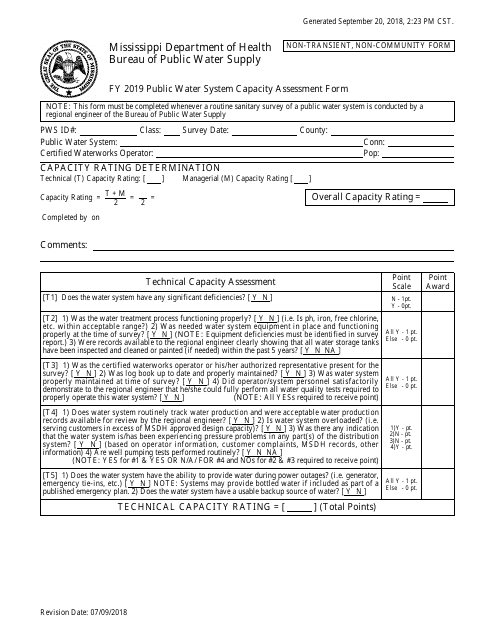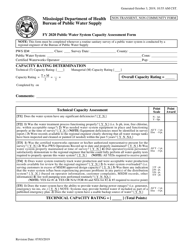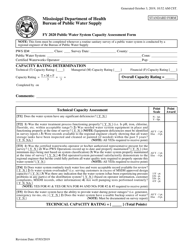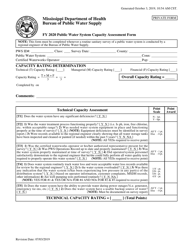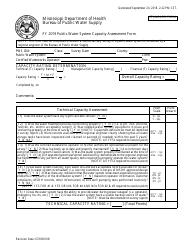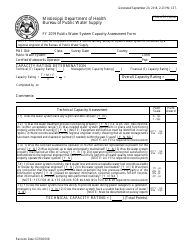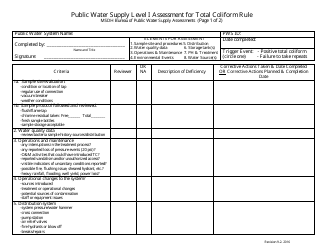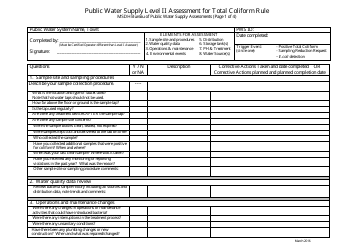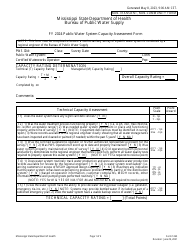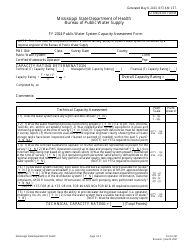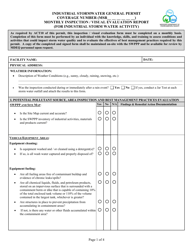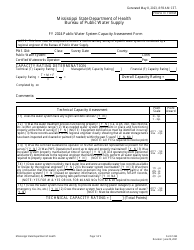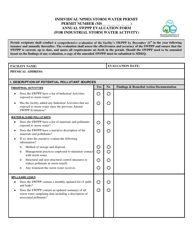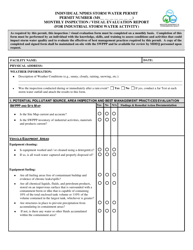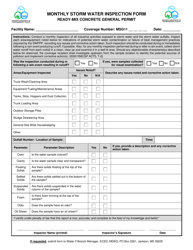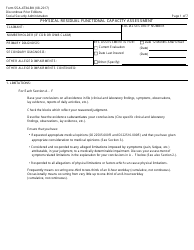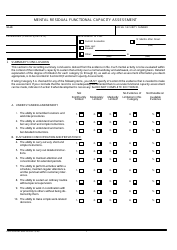Public Water System Capacity Assessment for Non-transient Non-community Systems - Mississippi
Public Water System Capacity Assessment for Non-transient Non-community Systems is a legal document that was released by the Mississippi Department of Health - a government authority operating within Mississippi.
FAQ
Q: What is a non-transient non-community water system?
A: A non-transient non-community water system is a water system that provides water to at least 25 of the same people for at least 6 months per year, but not as a primary residence.
Q: What is a capacity assessment for a non-transient non-community water system?
A: A capacity assessment is an evaluation of a water system's ability to meet the demands of its users, including assessing the adequacy of its infrastructure, treatment processes, and storage capacity.
Q: Why is a capacity assessment important for non-transient non-community water systems?
A: A capacity assessment is important to ensure that non-transient non-community water systems can reliably provide safe and adequate water to their users, both now and in the future.
Q: What factors are considered in a capacity assessment for non-transient non-community water systems?
A: Some factors considered in a capacity assessment include population served, water usage patterns, available storage capacity, treatment capabilities, and infrastructure condition.
Q: Who conducts capacity assessments for non-transient non-community water systems in Mississippi?
A: Capacity assessments for non-transient non-community water systems in Mississippi are conducted by the Mississippi State Department of Health, specifically the Office of Public Water Supply.
Q: What happens after a capacity assessment for a non-transient non-community water system?
A: After a capacity assessment, any deficiencies or areas of concern identified will be addressed through the implementation of corrective actions, which may include infrastructure upgrades, treatment improvements, or capacity expansions.
Form Details:
- Released on July 9, 2018;
- The latest edition currently provided by the Mississippi Department of Health;
- Ready to use and print;
- Easy to customize;
- Compatible with most PDF-viewing applications;
- Fill out the form in our online filing application.
Download a printable version of the form by clicking the link below or browse more documents and templates provided by the Mississippi Department of Health.
